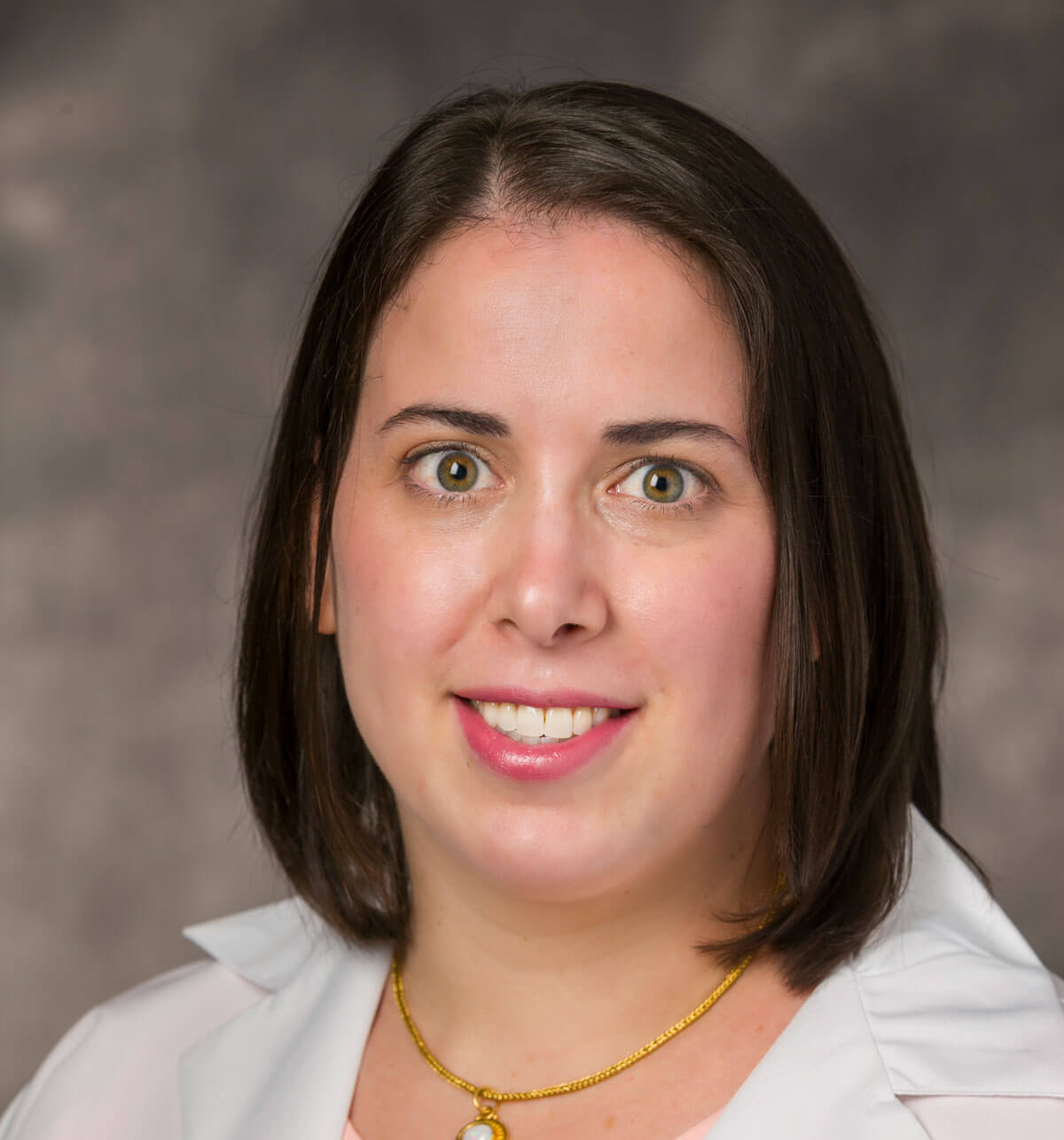UH Colorectal Surgeon Aims to Improve Medical Teaching and Learning
December 17, 2023
UH Clinical Updpate | December 2023
The prospect of taking concrete action to improve people’s lives motivated Emily Steinhagen, MD, to become a physician and ultimately a colorectal surgeon -- even if a medical career wasn’t always at the top of her list.
 Emily Steinhagen, MD
Emily Steinhagen, MD“I don't think I had a clear path in mind when I was young,” she says. “But I knew that I enjoyed working with people, and I wanted to do something active and hands-on. Healthcare was a good fit.”
That’s an understatement. Now in her seventh year at UH, Dr. Steinhagen has become a highly skilled clinician and prolific speaker and researcher. She is the author of 80 peer-reviewed publications and 23 textbook chapters and is a frequent invited presenter at national meetings. Topics of her work range from clinical issues in colorectal surgery procedure to racial disparities in care and outcomes, among many others.
Above and beyond: But that draw of hands-on care is always there, she says. Take a recent challenging case of anal dysplasia in a patient being treated at UH Geauga Medical Center. Dr. Steinhagen is the only colorectal surgeon at UH with the specialized training in high-resolution anoscopy, which this patient required. But this particular case also required the expertise of surgical oncologist Luke Rothermel, MD. With OR space at the premium at main campus, Dr. Steinhagen requested and received one-day privileges to join Dr. Rothermel in the surgery at UH Geauga.
“Given his interest in soft tissue tumors, and given the location and etiology of the problem, I was the best suited from my division. We work together quite frequently, and I really value those collaborations. This was simply the best thing for the patient, and it wasn't so difficult to drive out to UH Geauga for a day to make sure the patient got timely care.”
UH Geauga’s Chief Medical Officer Marlea Miano, MD, was appreciative of Dr. Steinhagen’s extra effort.
“For some it may be potentially stressful to operate at a facility you have never been to before; Dr. Steinhagen offered to do this without reservation,” she says. “In doing so, she helped UH provide the best possible care for this patient.”
Dr. Steinhagen was recently recognized for this action-oriented, can-do attitude with a “Dinner with the Doc” honor from Cliff A. Megerian, UH Chief Executive Officer and Jane and Henry Meyer Chief Executive Officer Distinguished Chair.
Advocating for evidence-based teaching: In addition to her work as a clinician and researcher, Dr. Steinhagen also plays a pivotal role in the education and training of medical students, general surgery residents and colorectal residents at UH. She is Associate Program Director of the General Surgery Residency Program, Co-Director of the General Surgery Mentorship Program and Director of the Third-Year Medical Student General Surgery Clerkship. She’s also pursuing a master’s degree in education in the health professions through Johns Hopkins University’s School of Education.
“I love teaching,” she says. “Just like we practice evidence-based medicine, I strongly believe in evidence-based teaching.”
“There's a lot that we know about how to teach learners effectively,” she adds. “For example, lectures are not the best way to teach. Rather, case-based learning where people come to a session and actually practice applying their knowledge to realistic patient cases leads to better understanding of the material and better ability to remember it and apply it later.”
But just as medical learners require more effective and practical clinical instruction, their instructors, she says, need better instruction themselves in how best to provide it.
“As surgeons, we rarely get trained as educators, and we're expected to teach,” Dr. Steinhagen says. “And it's probably our most important role second to patient care.”
To help remedy this situation, Dr. Steinhagen has been instrumental in UH’s General Surgery Residents as Teachers program and Faculty Development for Surgeon Educators. The goal is to train a new generation of effective medical teachers.
“We actually provide our residents with direct instruction about the best teaching, how to provide feedback, how to set expectations, how to teach technical skills and how to promote learner autonomy,” she says. “It’s been really successful. The residents teach medical students, the residents teach each other, and they're prepared for their future careers where they're expected to teach others.”
Collaboration is key: With all this work, whether with patients or medical learners, Dr. Steinhagen is also quick to single out the contributions of her partners and colleagues.
“Everyone who I work with, from my assistant Tammy Parks-Edgerson, to my nurse partner Stephanie Remaykel, has a focus on making sure that the patients feel cared about,” she says. “I could not possibly have a successful practice without the two of them. Plus, our division and our department is so encouraging and supportive of clinical care, education and research. We really support each other and work as a team, and the same with our nurses and our assistants. What I do as a surgeon couldn't be done in a vacuum. It really does require that kind of special environment, and I feel fortunate and proud to be part of that.”
Congratulations to Dr. Steinhagen on her “Dinner with the Doc” honor.
To nominate a physician for this honor, please visit the Digital Workplace. The next deadline is January 19.


